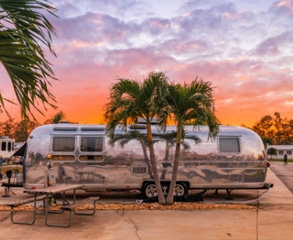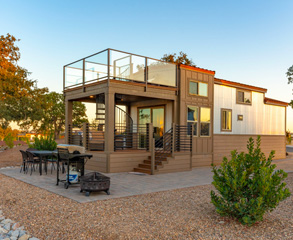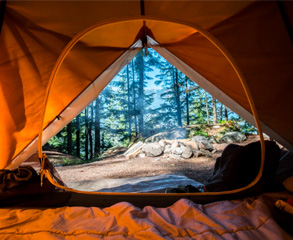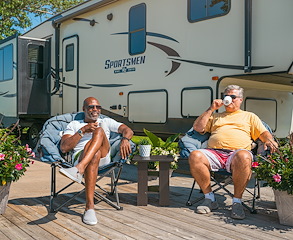Essential Tips for Preparing Your RV for Winter
As the days shorten and the weather cools, it's time for RVers to take action on their winter activities. Whether you're a summer camper winterizing your RV or a snowbird preparing for travel, this guide will help you navigate the preparations needed for the colder months.
Winterizing Your RV After Summer Camping
When summer ends, many RVers must winterize their RV to prepare for winter. Unless you live in a mild climate or have a heated storage facility, winterization is essential. Here's a quick recap of the basic steps to effectively winterize your RV:
- Clean Thoroughly: Deep clean the living areas, kitchen, and bathroom to prevent mold and odors.
- Prepare Water and Sewage Systems: Use antifreeze in your water lines and sewage systems to prevent freezing.
- Disconnect the Battery: Always disconnect the battery cable in your RV to avoid drainage.
- Seal Cracks: Inspect and seal any cracks, and install weather stripping around doors and windows to keep out cold air and pests.
- Perform Basic Maintenance: Check the oil, filters, and other essential components in preparation for the next season.
- Check Seals: Double-check all steps to ensure your RV is well-sealed against bugs and rodents.
Preparing Your RV for Winter Travel
For some RVers, the end of summer doesn't mean the end of adventure. Many continue RVing through autumn and winter, often heading to warmer states. Snowbirds, in particular, typically start their travels in December and January. Here are essential tips for preparing your RV for winter travel:
W.E.S.T. Checkup
- Water: Flush the water system before leaving. Pack two water hoses, an in-line water filter, and a water pressure regulator for safe drinking water.
- Electric: Check the electrical cord connector to ensure it's working. Bring an extension cord and any necessary power or voltage adapters.
- Sewage: Flush the sewage system once before departure and pack a full sewage disposal kit, including your preferred tank additives.
- Tires: Inspect all tires carefully. Ensure they are in good condition, properly inflated, and free of leaks. Remember, the average tire lifespan is around six years.
Additional Considerations for Snowbirds
Driving an RV in winter poses unique challenges. Make sure to review our safe driving tips for winter weather to ensure you're ready for any conditions. Additionally, assemble an RV winter driving kit with essentials like blankets, snacks, and emergency supplies for peace of mind on the road.
Conclusion
Whether you're winterizing your RV for storage or gearing up for a snowbird trip to warmer weather, these tips will help ensure your RV is in great condition for the winter months.
If you found these tips helpful, share this post with fellow RVers to help them prepare for winter adventures!
Related Posts









